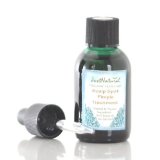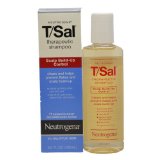Many people are all too familiar with acne on the skin (pimples or type of folliculitis). The problem is especially troublesome for young adolescents who are prone to frequent breakouts. It is not a serious condition for your health, and usually the worst effects are merely cosmetic. Acne can also occur on the scalp. While scalp acne does not present much of a cosmetic concern due to the fact it is usually hidden by the hair, it can nonetheless be quite an annoyance that one can take steps to prevent.
Acne on the scalp occurs in a process that mirrors conventional acne on exposed skin. Sebaceous glands in your hair follicles produce oil which migrates up the follicles to help lubricate the skin. When too much oil and dead cells are produced, they can clog the pores. This can create an environment that is very favorable to normally harmless bacteria naturally present on your scalp. This can cause an infection and the appearance of the inflamed lesions characteristic of acne.
There are many factors that can help contribute to this condition. Adolescents tend to have more acne than adults, as they are producing a lot of hormones that help to increase oil production. Pregnant women can experience outbreaks of scalp acne for the same reason. According to MayoClinic, certain drugs such as corticosteroids (Prednisone), anticonvulsants, lithium, barbiturates, DHEA, androgenic steroids are also known to contribute to the problem. A high carbohydrate diet can also be a risk factor for acne.

.
There also are some additional factors that can influence scalp acne, specifically. According to HairgrowthMagazine.com, dandruff is a very common cause of acne on the scalp. This condition is characterized by a very dry scalp which can cause the scalp to become quite flaky. This can lead to an excess of dead skin that can clog the pores, forming new acne lesions. Head lice can also damage the follicles and contribute to the disease. A variety of hair care products can also exacerbate the problem by irritating the scalp or adding extra oil to the scalp, resulting in clogged pores.
Most people will find acne on the scalp as a minor annoyance. In most people the condition will naturally go away within a week. The lesions can occur more chronically in some people and can sometimes itch or be painful. As a result, there are a number of steps to help alleviate the problem and prevent future outbreaks.

.
One of the challenges with the treatment of acne on the scalp is that the hair can actually trap dirt and oil in the pores, making it a more fertile environment for an outbreak. As a result, keeping your scalp clean by consistently washing your hair with a mild shampoo will go a long way towards preventing scalp acne. Note that you should not overdo it, as scrubbing the scalp too vigorously can irritate the skin and make the condition worse. Using best acne face wash products and dandruff shampoo can also potentially help, by helping to reduce the amount of dead skin accumulating on the scalp.
If you are suffering a severe outbreak of acne on the scalp, consider halting the use of your current hair care products for a while. Many products contain harsh ingredients such as humectants that can irritate the scalp or cause an allergic reaction. If you are using hair styling gels, make sure to wash them out of your head before you go to bed. Also consider avoiding the use of conditioners. These products add oil back into your hair, and if you hair is too oily to begin with, the extra oil can help clog the pores, resulting in acne lesions.
There are also many over the counter acne remedies that can be used on your hair. Unfortunately, the most powerful active ingredient, benzoyl peroxide, will tend to bleach the hair, so it is not recommended for scalp use. Salicylic acid is not as potent, but can be effective in helping to cleanse the scalp and thus alleviate acne. A convenient way of using this ingredient is by using a shampoo containing it to wash your hair.
For people with more severe forms of acne that do not resolve readily after the lifestyle changes mentioned above, they should consult their physician. A doctor can prescribe more potent topical or systemic medications designed to prevent acne. The most common treatments are antibiotics (oxytetracycline, tetracycline, doxycycline, lymecycline, erythromycin and trimethoprim) which kill the bacteria that cause the skin inflammation. Clindamycin and sodium sulfacetamide are commonly used agents to treat such outbreaks.
Finally, as with normal acne, do not attempt to scratch or pick any of the lesions on your scalp. This practice can lead to infections. While it might be tempting to scratch your scalp to relieve the discomfort, try to maintain enough discipline to ignore the sensation and focus on other things.
Scalp acne is a problem that for most people is a minor inconvenience. For those who suffer from frequent outbreaks, the steps outlined above should go a long way towards ameliorating the problem.
Watch the video about my experience with acne on the scalp with some healthy tips.